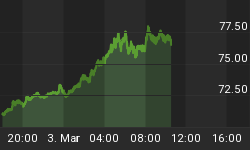The tumble of the Turkish lira sounded the alarms for investors across the planet, and the repercussions will be heard all over. Yet the real nightmare would be a collapse of Italy‘s economy, the third-largest in the European Union.
As the country's new populist coalition government is currently working on next year's budget with more money likely to be doled out for the army of pensioners and all the state benefits recipients, its public debt, at 123 percent of gross domestic product now, will imminently grow.
The EU-permitted limit is 60 percent, and only Greece has a similar ratio.
The European Central Bank (ECB) said Friday it was concerned about the ongoing currency crisis in Turkey and the resulting fallout which could lead to a bunch of problems for the continent's banks.
Although the European banking watchdog did not pinpoint Italy specifically, that’s where all eyes are necessarily turned.
In late May, with the new Italian government sworn in, the ECB has warned it to stick to EU budget rules rather than embrace new spending projects given its 2.3-trillion euro debt.
Italy's new populist government, headed by the anti-establishment 5-Star Movement and far-right League, has outlined plans for tax cuts, a basic monthly income and continuity for pension payments.
In its biannual financial stability review published on Thursday, the European Central Bank warned: "A loosening of the fiscal stance in high-debt countries could impact the fiscal outlook and, by extension, market sentiment." Related: What Happens If Tesla Goes Private?
What will happen in Italy in the coming months will either placate the irritated ECB and investors or exacerbate the situation in continent’s fiscal markets.
Italy’s financial plan for 2019 will undoubtedly be closely scrutinized by European authorities and market players following the electoral promises to increase public spending.
If the ECB and other lenders do not approve of the next budget, due around October, borrowing costs for Italy are likely to go up, which in turn could negatively impact neighboring European countries. It could also cause problems for certain European banks that hold Italian debt.
It is apparent that in the aftermath of the 2011 sovereign debt crisis that investors have become leery of contagion risks across the entire euro zone. Hence, their determination to contain problems now, not when they have spiraled out of control.
On Monday, Italy contacted the European Central Bank to discuss its continuing debt crisis after government bonds reached the highest since its June election, according to an inside source.
However, Italy's Deputy Prime Minister Luigi Di Maio lashed out at speculations, insisting that Italy's economy will not be affected.
“I don’t see a real risk that this government will be attacked, it’s more a wish of the opposition,“ he told an Italian newspaper on Monday.
This comes after Italy’s 10-year spread over German bonds touched 273 basis points, the most since the coalition took office in June.
Related: China's Most Powerful Weapon In The Trade War
Media reports suggested Friday that officials at the ECB are mostly concerned over southern European banks, including those in Italy, which have lent significant amounts of money in Turkey. This suggests that investors holding stock in European banks could be at risk. The ECB declined to comment on the reports.
European bank shares were rattled Friday after FT reported that ECB regulators were concerned about the exposure of Spain’s BBVA BBVA, +1.63 percent BBVA, +2.21 percent Italy’s UniCredit UCG, -1.10 percent and France’s BNP Paribas BNP, +0.00 percent to lira weakness.
The report said regulators didn’t yet see the situation as critical, but the watchdog was concerned since all three maintain significant operations in Turkey. Specifically, regulators worry that Turkish borrowers might not be hedged against lira weakness and could begin to default on loans denominated on other, strengthening currencies.
By Linas Jegelevicius for Safehaven.com
More Top Reads From Safehaven.com

















